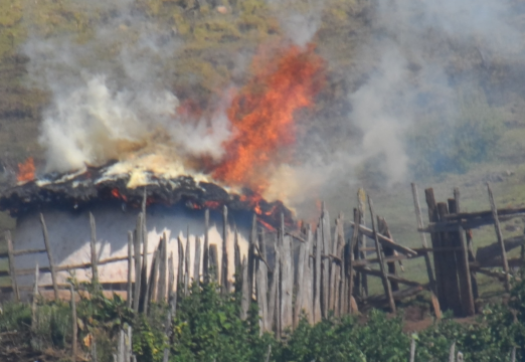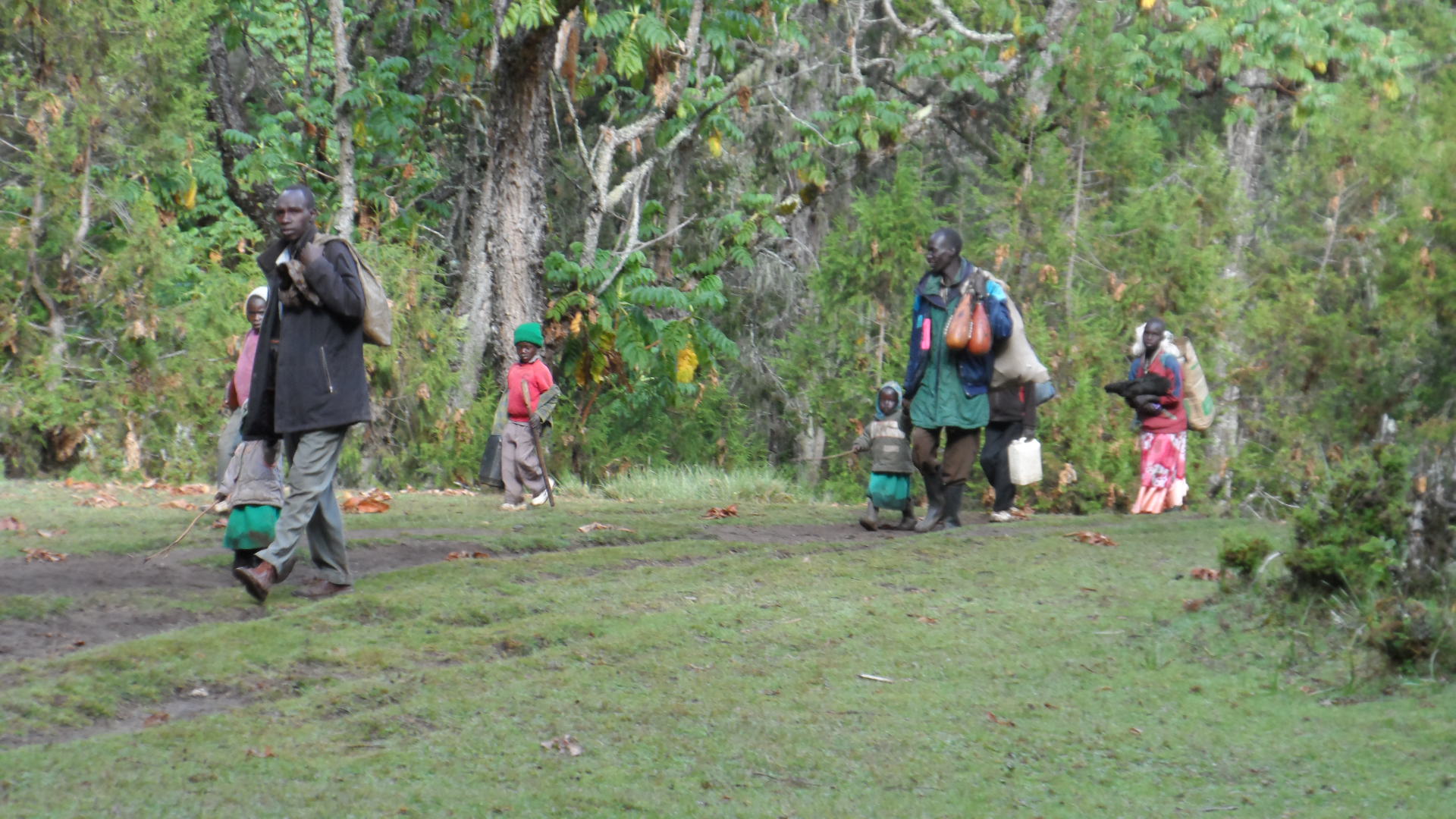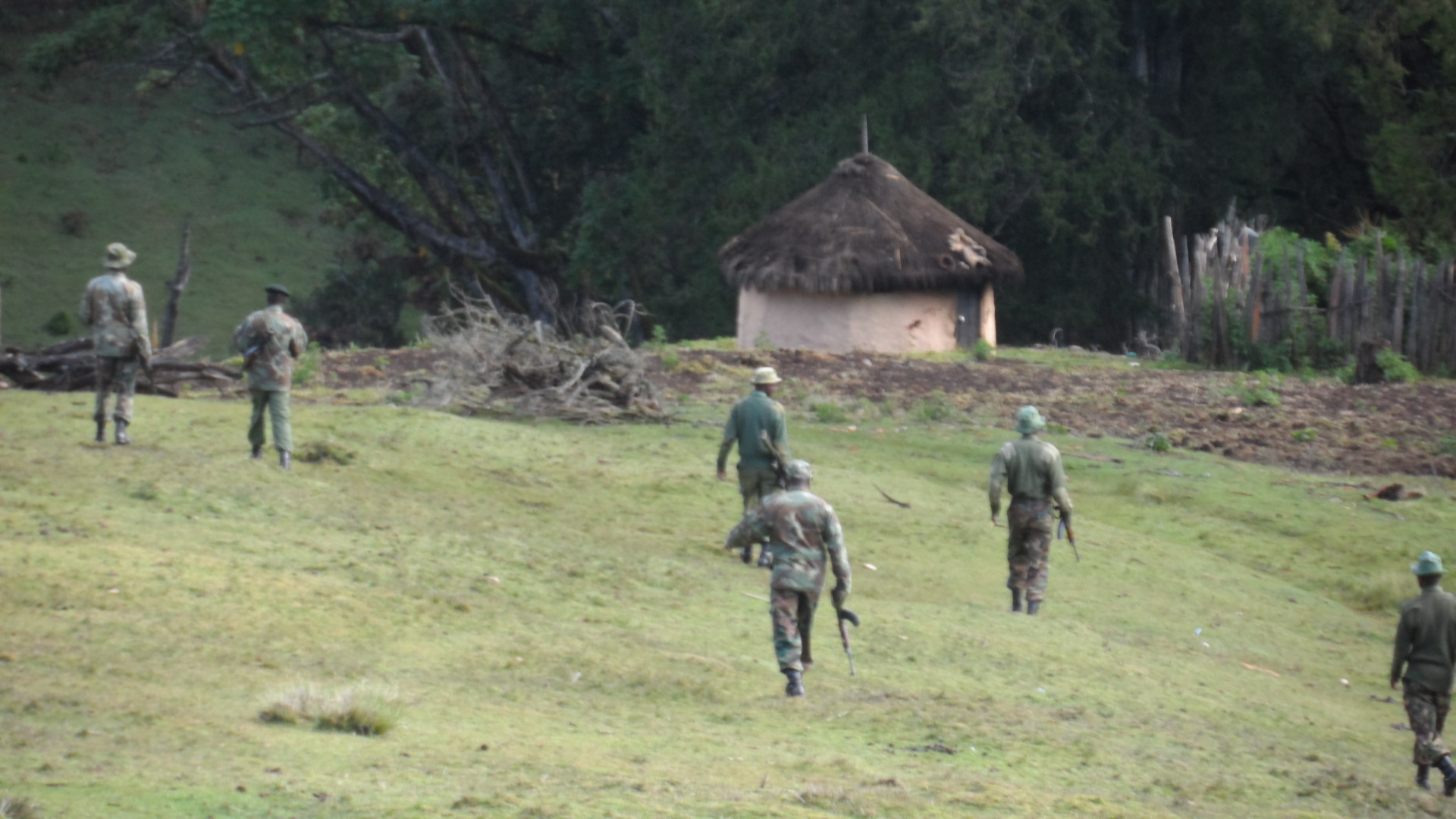Fight Against Forced Evictions
Fundraising campaign by
fighta
-
£534.00raised of £5,000.00 goal goal
No more donations are being accepted at this time. Please contact the campaign owner if you would like to discuss further funding opportunities
The Sengwer are an indigenous tribe based in Embobut forest, Kenya- but not, it seems, for much longer. Since 2007, repeated attempts at evicting the tribe have been made, all in the name of conservation. REDD (A UN initiative; Reducing Emissions from Deforestation and forest Degradation), in collaboration with the World Bank and Kenya Forest Service, are behind the torching of over 1000 homes. In 2013 a moratorium on forced evictions was granted in response to complaints of human rights violations. However in January 2014, police accompanied by armed soldiers invaded the villages, chasing out the inhabitants without even allowing them to collect their belongings. Now the whole tribe are sheltering in the forest with their livelihoods gone up in flames, and no authority to turn to.
At an indigenous peoples' conference in 1999, David Yator Kiptum, a spokesman, explained how their ancestral lands were being taken and the tribe was being forced into a small forest area. In order to preserve the forest's resources, they had to make a dramatic lifestyle shift to subsistence agriculture. They were a small but resourceful tribe, experimenting with organic growing and bee keeping, living in thatched mud huts.
Since they established themselves, many others have seen the wealth of the forests. An influx of settlers has been having a detrimental effect upon the natural resources, polluting and drying up the water sources, scaring away wildlife. Much like people in developed countries, these lifestyles damage the environment much more than the Sengwer. Despite this, these settlers are receiving compensation to leave the forest while the Sengwer's untitled claims are disregarded.
Globally, deforestation/degradation is the 3rd largest carbon emitter (IPCC 4th Assessment report), meaning that run properly, the initiative would be a significant blow against climate change.. However, REDD has failed to grasp that some inhabitants live in harmony with the forest, benefiting the environment while providing for themselves. Having lived sustainably for thousands of years, the Sengwer are ideal stewards of the forests and could be even more effective than REDD at preserving the forest's ecological value.
The REDD program claims that 'creating a financial value for the carbon stored in trees' will help to tackle climate change. But the true value of the forest is multifunctional- its benefits are reflected by how well they are integrated into the full web of life- a web which includes human cultures.
The Sengwer need to be allowed to protect their ancestral forests, and soon, before the only space for this indigenous tribe of Kenya is between the pages of a history book.
For a brief overview of the World Bank funded forced eviction of the Sengwer from their Kenyan forest home in the name of natural resource management, go to http://intercontinentalcry.org/sengwer-kenya-forcibly-evicted-21865/
“All school uniforms, cooking pans, water containers, cups were burnt. Now the children have to stay home while I find uniform and books. The children are very upset because we have lost everything. The children and elderly people will end up getting pneumonia because we don’t have anything to cover ourselves at night.”-a Sengwer woman, heartbroken, after her home was burnt to the ground.
What the money is for
All of the money we receive through this appeal is going directly to people we know and trust from the Sengwer tribe. They need money for immediate humanitarian assistance, like blankets, but most will be used to publicise their situation and fund legal fees to fight against the evictions- taking the apeals to higher courts until they win the right to live in their ancestral homelands.
The Sengwer need this money urgently. The burning of their homes has gone on for far too long. A little bit of money can help them with their immediate situation, but they really need the £5,000 to get them through the publicity campaigns and the lengthy legal appeals that will gaurantee them long term security on their land. Please give what you can.
About us
This campaign has been started by Ele Saltmarsh, Rebecca Laughton and Jyoti Fernandes. Jyoti met Yator Kiptum and other spokespeople from the Sengwer tribe at a gathering of indigenous peoples from around the world 15 years ago. The Sengwer asked for help learning subsistence farming and bee keeping. We are organic farmers, so we sent over some information for them to learn from. Rebecca visited the Sengwer in their villages to deliver the materials and was welcomed with open arms. Recently Ele Saltmarsh, Jyoti's daughter, won the Amnesty International Youth Reporter Awards for writing about the Sengwer, and has pledged to do what she can to help them to stop the evictions.
We are all experienced land rights campaigners. Aside from raising funds, we are helping the Sengwer with research to back up their appeals, creating a documentary about the evictions, and making sure the World Bank knows "the world is watching". Our work is done on a voluntary basis.
Organizer
- fighta
Donors
- Jules
- Donated on Jun 19, 2014
- Guest
- Donated on May 29, 2014
- Guest
- Donated on May 26, 2014
This elite disregard for the rights of indigenous land-owners is disgraceful. Especially, in this case, since the elites forced the indigenous people to turn to agriculture (and forest-felling) by not restoring their ancestral land rights to them after the close of the colonial time. I send you my best wishes for a successful outcome to your fight to stay on your land.
No updates for this campaign just yet
Donors & Comments
- Jules
- Donated on Jun 19, 2014
- Guest
- Donated on May 29, 2014
- Guest
- Donated on May 26, 2014
This elite disregard for the rights of indigenous land-owners is disgraceful. Especially, in this case, since the elites forced the indigenous people to turn to agriculture (and forest-felling) by not restoring their ancestral land rights to them after the close of the colonial time. I send you my best wishes for a successful outcome to your fight to stay on your land.
- Carolyn
- Donated on May 25, 2014
- Guest
- Donated on May 25, 2014
Very upsetting to read about the continued flight of these people. Do hope pressure can be brought to bear on the government to allow them to stay.
- Guest
- Donated on May 25, 2014
- Pete
- Donated on May 25, 2014
This is a genuine appeal. Please help if you can.
- Eva Bakkesett
- Donated on May 24, 2014
- Rebecca Laughton
- Donated on May 23, 2014
I visited the Sengwer in 2000 and Yator Kiptum and his family hosted me generously. I was struck by how beautiful the area was, with diverse wildflowers and small cultivated areas and livestock enclosures blending into the forest. One young lad showed me his garden, where he and his friends were experimenting with different organic techniques. I am horrified by what the World Bank is doing to the Sengwer in the name of an environmental project, and hope that they can be stopped before more is lost. Please give generously to this very important cause.
- Guest
- Donated on May 22, 2014
This is a horrific situation - let us hope we can help in some small way.





